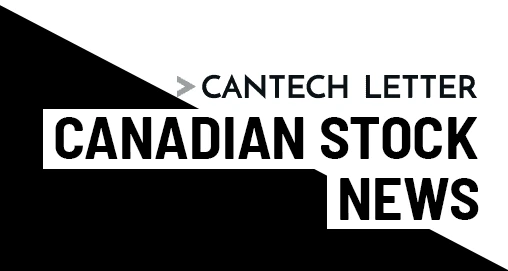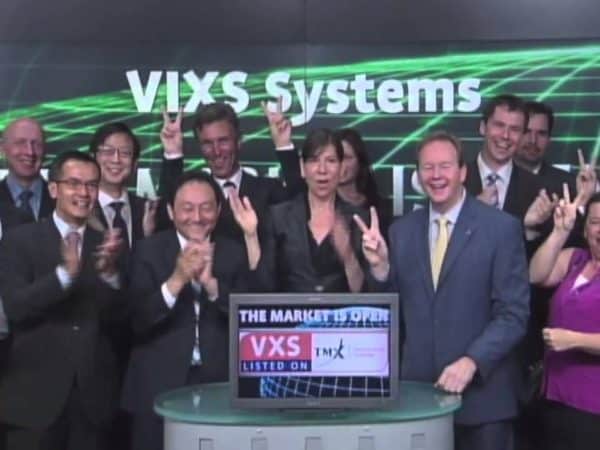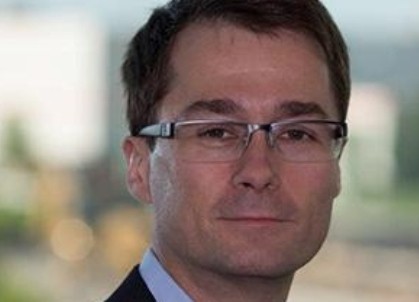
A 25 Year Old Startup: International Datacasting (TSX:IDC)
In the past five years broadcast technology has, arguably, advanced more than in the previous fifty. No sooner did we put a high definition television in the living room than 3-D TV was upon us. 3-D, HDTV, IPTV, whatever buzz phrase you can name, a cluster of publicly traded Canadian companies is helping to advance broadcast technology around the world. Last November, Adam Adamou brought together two investees from his venture capital days, Fred Godard of Leitch Technologies Inc. and Frank Ruffolo of Softquad International Inc. to acquire about 20% of Ottawa’s International Datacasting Corporation (TSX:IDC), a 25 year old broadcast technology company that was struggling with escalating costs and declining revenues. Less than a year later, with Godard in place as President & CEO and Adamou as Executive Chairman IDC reported one of its best quarters ever and is now positioned as a key player in this exciting industry.. We sat down with Adam and Fred to talk about the company Adamou calls a “25 year old startup”.
Nick Waddell:
Adam, you and Fred have only been involved with International Datacasting for a short time, but the company just delivered one of its best quarters ever. How did this happen?
Adam Adamou:
Thanks for inviting us into your virtual parlour Nick, I’m a long time fan of the work that you are doing at the Cantech Letter.
With respect to your first question, the answer is good old fashioned hard work, perseverance and dedication from the entire team – from the Board on down to the front lines. We were very fortunate to be able to come in and to quickly bring our employees in line with respect to the fact that the company needed to move in a new direction – operationally – in order to succeed. We met with all of the staff from all of our locations – face to face and one-on-one where required, and we explained to them that things had to change in order for IDC to be successful and that part of this change would require a re-thinking of the business plan and the operations. We really have a great team here and we soon discovered that they are as dedicated to the success of this company as we are. Once we had this
buy-in, we were able to keep a cap on costs, roll-back some salaries,
improve our manufacturing and operations processes and implement new controls and procedures while keeping one eye on our cash balances and the other on the top line. When you have your expenses under control then incremental revenue should fall to the bottom line. This was one of the key problems with IDC – a lack of fiscal discipline in keeping costs in line when revenue increased. Once we brought this discipline to the table the culture and the thinking began to adapt – but to be clear, we’re not done yet. We’re just getting started. The key here is that we don’t believe that we need to lose money to grow – that’s a very “1990’s” way of thinking.
NW: So how did this all come together?
AA: I’ve had a long standing interest in the video and broadcast space going back to the mid 1990’s. I know the people at Growthworks well (I started my career at Working Ventures, a Growthworks’ predecessor fund) and I was fortunate enough to stay in touch with some of the excellent managers that I had invested in during my venture capital days. There’s not too many people in the world that know the broadcast space better than Fred Godard, and Frank Ruffolo is one of the smartest investors and operators that I’ve ever had the privilege of working with. With the three of us and Growthworks at the table we were able to come to an agreement to acquire Growthworks’ position. It was a win-win-win-win-win for all of us, the four parties at the table and IDC. It was all quite friendly, our purchase of the shares, the invitation to join the Board and the subsequent changes that were made. It was time to shake things up at IDC and all of the parties were on side with that. The Board, at six members is small and effective with an excellent skill-set and diverse backgrounds. It’s a very exciting time for IDC and we’re all proud to be a part of it.
NW: Fred for investors who are new to IDC can you give an overview of what IDC does, a brief history of it successes and failures…
Fred Godard:
IDC has a long history of involvement in the delivery of various signals over satellite. It started out with the delivery of radio programming from sources to various stations across vast networks. IDC was a forerunner in the deployment of IP streams over satellite and this led the Company into facilitating the delivery of data over satellite. Most recently, IDC has expanded its reach by focusing on rich media, principally the delivery of audio/video signals over satellite networks.
This focus has led to many significant wins. Examples include the technology upgrade of the National Public Radio network for radio, we support the delivery of Thomson Reuters financial information around the globe and we provided the store and forward satellite network distribution for the Public Broadcasting System. Recently, our equipment enabled the distribution of the FIFA World Cup games “live” to cinemas around the world.
NW: Fred what markets is IDC addressing now? Have you changed the
focus of the company in terms of the markets you address?
FG: As much as IDC is capable of attracting significant wins, they tend to be large one time build outs, as opposed to more protracted network upgrades spread over a longer period, a steady run-rate business. This reliance on large “pop” opportunities has led to a choppy revenue stream.
We are working very hard to create more even, predictable revenue streams. We are doing this by focusing upon those markets that have a sustained and expanding need for network upgrades and expansion. Radio and data have been, and continue to be, good long term markets, but there is an evolving paradigm shift in how these networks will distribute content as terrestrial landline broadband availability increases and competes with satellite. We are developing hybrid network architectures that takes advantage of the best of both to optimize cost of delivery and network efficiencies. Broadcast television and alternative delivery markets, such as d-cinema, represent another market segment that IDC has only scratched the surface.
As the proliferation of rich content coming from traditional and new sources puts increasing demand on the existing distribution infrastructure, this creates an expanding opportunity for IDC to grow revenues through more advanced network offerings and we are focusing on these new offerings right now.
We have also refocused upon our core and historic strength in systems design and have gathered that expertise in a new offering, under the banner of IDC Systems Group, whereby we offer systems design and integration services plus next generation consumer and prosumer Set Top Box offerings. Watch for more of this business in the future.
NW: Adam, how long do you plan to stay on as Executive Chairman of IDC?
AA: My job is to help out as needed in order to make sure that the changes that we make “stick”. We’re dealing with a 25 year old company that is undergoing some immense changes – internally and externally – over a short period of time and right now the Board has decided that there is enough to be done that an extra pair of hands is good to have around. I’ve described IDC to our employees as a “25 year old start-up” – meaning that we intend to combine the breadth of our experience with some innovation and new thinking. Fred and I are working together to make sure that the team, the plan and the strategy comes together and gels properly – that’s our focus right now. I’ll step back when the Board decides that my work here is done.
NW: Fred, how large is the addressable opportunity for IDC?
FG: Nick, In the past IDC has been thinly focused on very small niches in select market segments, chasing sales opportunities as opposed to market opportunities. We are now focusing on market verticals where there is scope and scale. As we explore more opportunities in the rich media markets, our addressable opportunity expands tremendously into the hundreds of millions size, if not billions of dollars, of market opportunities.
That is not to say that we will secure a large share of these markets overnight, however by making a strategic attack, by exploiting some gaps in our competitor’s offerings, we will capture share in a growing market opportunity. I am quite optimistic about the future for IDC.
NW: Fred, who do you normally compete with on contracts?
FG: We are in three basic market segments, radio, data and rich media (video). The number and size of our competitor’s change as does the segment. For example, there are few competitors in radio, a few more in data and many larger players in rich media. This reflects the size and opportunity of the underlying market segments. We like to focus on emerging market opportunities and exploit first mover advantage. In addition, we have competed and have won business away from some very large players in the more established market segments, won against an almost embarrassing array of names and to suggest that we could compete alone in these markets is out of the question. However we have cultivated a number of important relationships which, in partnership, presents us opportunities to pursue business that might otherwise be considered to be out of our league.
NW: Why is bandwidth optimization so important for broadcasters?
FG: Bandwidth costs money and the larger the media content, the more expensive it becomes to distribute it, to deliver it to the consumer.
NW: With 3-D TV, High Def TV, mobile digital, live streaming, satellite and IP, it seems we are really going to stretch the limits of capacity.
How long do you see you see this strain on bandwidth continuing?
FG: There is no limit to the demand for bandwidth, just its supply. As the richness of the content increases and the amount of it expands, there will be constraints on the supply of bandwidth well into the future.
NW: Adam, you are ten years in the future. How has the way we get content changed and what has been IDC’s role?
AA: Ten years is a very long time in this business – If I was asked that
question ten years ago, back at the turn of the millennium, my guess would look very silly today and it would without a doubt be completely off base. Guys like you would probably use it to embarrass me! So thanks, but I’ll leave that kind of prognostication for the futurists.
What we do know is that we have a lot of content on this planet – and with the enabling technologies that IDC provides, this current trend of delivering more content seamlessly to more people in more locations, dynamically, and on multiple devices and formats will continue. That fact is a given and I think that it will be true next year, in five years or in ten years, and beyond. What we can’t predict are the emergence of disruptive technologies – think social media or the emergence of the mobile phone as a platform for the consumption of content or even the emergence of the Internet as a transport mechanism twenty years ago. There will certainly be more changes of that sort emerging from the current trends and the goal for IDC is to be a platform agnostic provider of equipment, technologies and standards that are evolving now or that emerge in the future. We don’t need IDC to be picking sides when it comes to platforms or standards – we want to work with our customers, to focus on their demands, or listen to what they want and to deliver reliable efficient solutions that allow them to solve their problems. If we can do that well, then we can build a business here at IDC that can survive the present trends and then move beyond them as new disruptors emerge.
Disclosure: Cantech Letter’s Nick Waddell owns shares of International Datacasting.
Leave a Reply
You must be logged in to post a comment.






 Share
Share Tweet
Tweet Share
Share




Comment